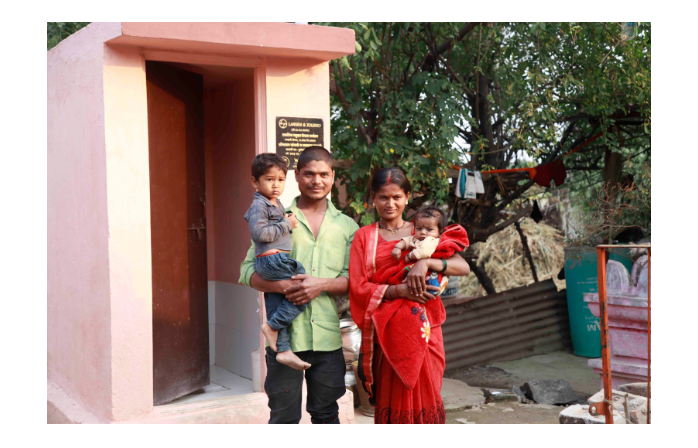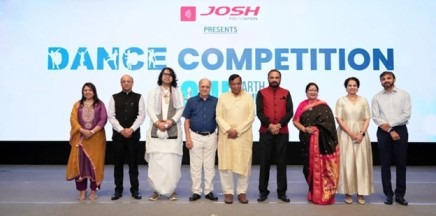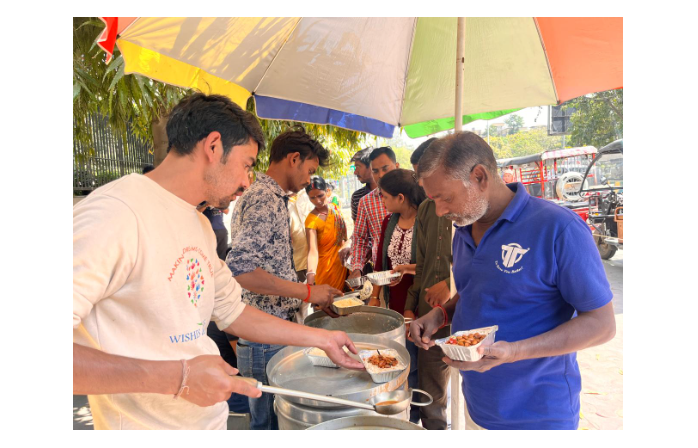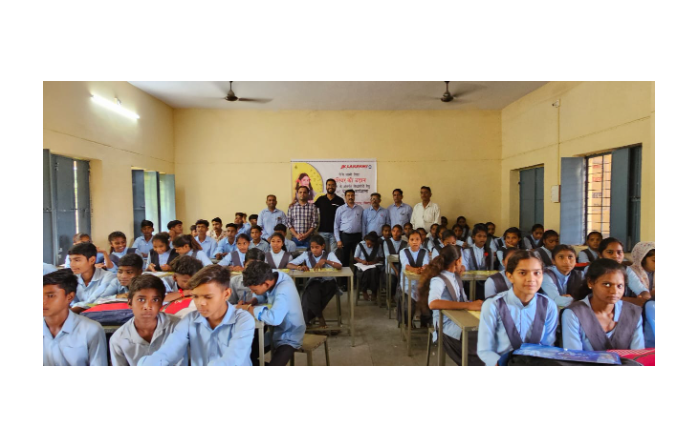The RJ Turned Conservationist: Saving a Breed from Extinction
By- NGOBOX
January 3, 2024
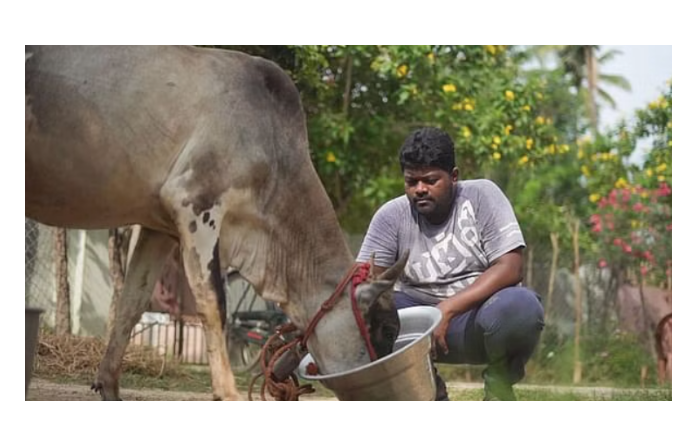
NGOBOX
In the sleepy town of Umbalachery, Tamil Nadu, a young boy named Rajavel Nagarajan spent his childhood immersed in the rhythms of rural life. His family were dairy farmers, raising the native Umbalachery cattle breed prized for its adaptability to the region's hot and humid climate. Young Rajavel helped out around the farm, developing a kinship with the docile animals.
This was in the 1970s when the Umbalachery breed still numbered around 1000. But over the next two decades, their population would dwindle rapidly. By the 1990s, less than 150 purebred Umbalachery cattle remained in the entire world. This was the precarious state of the breed when Rajavel, now a 20-year-old college student, decided to take action to save his community's cultural heritage from extinction.
A Passion for Protecting Native BreedsAfter finishing 12th standard, Rajavel left his hometown to pursue journalism studies in Chennai. He harbored dreams of becoming an investigative crime reporter. But during a college trip to the Vandalur Zoo, Rajavel experienced a turning point.
Seeing the native livestock breeds in poor condition at the zoo stirred up memories from his childhood on the family farm. Rajavel became disturbed by the situation and exited the zoo premises. He realized then that his calling was not to be an RJ but rather a protector of India's threatened animal breeds.
Soon after, Rajavel established the Umbalachery Cattle Conservation Trust in his hometown in 1992. He was only 20 years old but fiercely determined to bring the native cattle of his ancestors back from the brink of extinction. This was the modest start of what would become Rajavel's life mission.
Reviving the Umbalachery BreedWhen Rajavel began his conservation efforts, the few remaining Umbalachery cattle were scattered in remote regional villages. Many farmers had crossed the cows with high-yield breeds like Jersey and Holstein Friesian. Finding purebred animals to build up a breeding herd was extremely challenging.
Rajavel persevered, traveling long distances to locate any surviving purebred Umbalachery cattle. He then convinced the farmers to sell him their remaining stock so he could centralize the animals at a conservation and breeding facility. He also petitioned the government to declare the Umbalachery breed as endangered.
With the limited breeding stock available, it was a race against time to save the Umbalachery breed from dying out completely. Each purebred animal was precious. Through artificial insemination, embryo transfers, and meticulous herd management, Rajavel slowly multiplied the numbers of this native cattle breed.
Creating Rural Livelihoods with Indigenous BreedsBeyond just increasing the population of Umbalachery cattle, Rajavel wanted to create livelihood opportunities for rural communities connected to indigenous livestock.
The Trust began supporting small dairy farmers by providing access to high-quality Umbalachery breeding stock. They also trained villagers on utilizing native breeds sustainably through practices like bio-gas generation from cow dung.
Women, in particular, were empowered by organizing into self-help groups for dairy development schemes using Umbalachery cattle. Tribal families and landless laborers also benefited from cattle rearing and dairy production.
This model promoted respect for the multipurpose native breed while boosting food security and income generation for marginalized groups. Rajavel aimed to sustain rural communities and India's cattle diversity together.
Generating Public AwarenessPart of Rajavel's strategy involved generating public awareness about the importance of conserving native animal breeds. This was key to creating broader momentum for the cause.
The Trust engaged with media outlets and communications professionals to share the story of the Umbalachery cattle. Two commemorative postage stamps were even issued by the government featuring the breed.
Youth ambassador and volunteering programs were initiated to engage students and young professionals in cattle conservation. The Trust also conducted seminars and workshops for the public on topics like organic farming using native breeds.
Over the years, Rajavel kept expanding the scope of the Trust's activities to further the mission of protecting indigenous livestock and rural livelihoods. But the revival of Umbalachery cattle remained central.
Impact CreatedThanks to the tireless efforts of Rajavel Nagarajan and his team, the Umbalachery cattle conservation program has made an impressive impact:
Over 1,200 purebred Umbalachery cattle have been bred since the program started. The breed has grown from less than 150 to over 5,000 animals.
Thousands of small dairy farmers have better livelihoods due to receiving Umbalachery breeding stock and training on cattle rearing as a business.
Rural women are empowered through inclusion in dairy development schemes run by self-help groups using native breeds.
India's precious native bovine diversity is preserved by protecting the locally adapted Umbalachery breed.
Sustainable organic farming is promoted using Umbalachery cattle dung as a natural fertilizer and the cows for plowing fields.
Public awareness campaigns have created an appreciation for conserving India's indigenous cattle breeds.
Youth are engaged in conservation through volunteer programs. This inspires the next generation of environmental stewards.
Animal husbandry training provides new skills and knowledge to rural communities. Over 200 staff have now completed certification courses.
For his achievements, Rajavel has received accolades from leading institutions like the United Nations, Prince Charles of the UK, and India's National Dairy Research Institute. But true fulfillment comes from seeing once-endangered Umbalachery cattle thriving again in their native villages.
Expanding the Vision to Broader IssuesIn the three decades since founding the Trust, Rajavel Nagarajan's vision has expanded far beyond cattle conservation. Today, his approach focuses on building integrated rural development models centered around respect for the natural environment and indigenous knowledge.
The Trust engages in diverse programs encompassing renewable energy initiatives, organic farming certification for hundreds of smallholders, rural health camps, youth skill training centers, and more. Women's empowerment continues to be a priority across all initiatives.
Umbalachery cattle remain a keystone species, providing organic milk and plow power while also generating biogas and organic fertilizer from dung. But the solutions Rajavel promotes are now holistic, aiming to lift up entire rural communities in sustainable ways.
His personal mission statement reflects this broadened vision of conservation of native breeds leads to organic farming which leads to alternative energy. This energy sustains nature, cattle and humans.
At just 50 years old, Rajavel has already made immense contributions as both a cattle conservationist and a humanitarian. But his passion to uplift rural communities while protecting indigenous breeds and the environment remains strong. This former RJ's life work demonstrates the power of local solutions and dedicated individuals to drive impactful change.
Source

India's largest platform for NGOs and social sector professionals. Bringing together jobs, grants, fellowships and more.
© Renalysis Consultants Pvt Ltd



.jpg)

